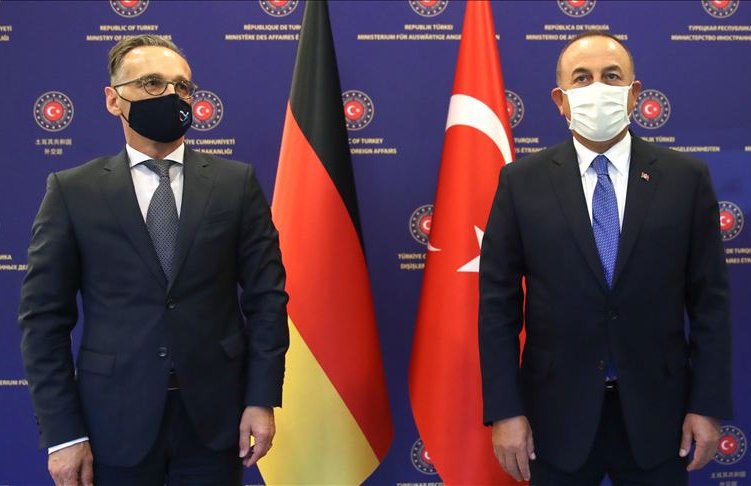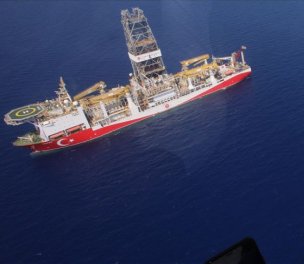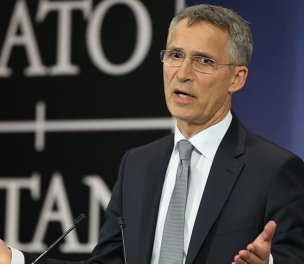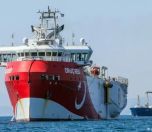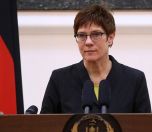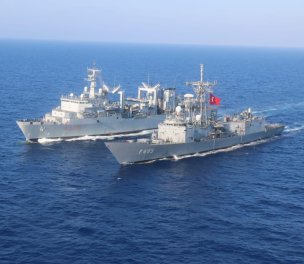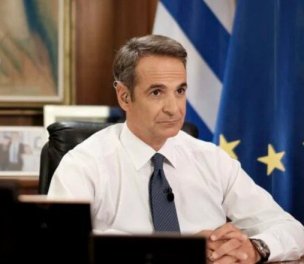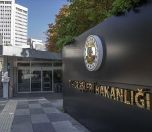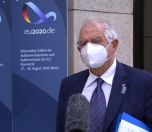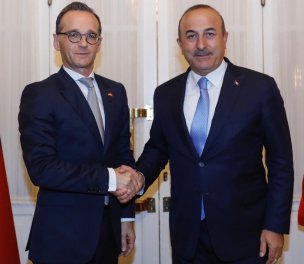Photo: AA
Click to read the article in Turkish
While Turkey is ready to talk with Greece about the Eastern Mediterranean crisis without preconditions, it is also "ready to do whatever is necessary to protect its legitimate interests," Minister of Foreign Affairs Mevlüt Çavuşoğlu has said.
Çavuşoğlu's remarks came at a joint news conference with his counterpart from Germany, Heiko Maas, in the capital Ankara after they discussed a variety of issues, including the Eastern Mediterranean crisis and developments in Libya.
As part of Germany's efforts to mediate talks between Turkey and Greece, Maas yesterday (August 25) first visited Athens and then flew to Ankara.
CLICK - Back to back military drills by Greece, Turkey, Cyprus amid Germany's diplomatic efforts
He also urged Greece not to "put itself at risk" by rising to the bait of "some countries" in the Eastern Mediterranean region but to instead act in line with reason so there are no conflicts in the region.
He did not name any countries, but Greece recently signed a maritime border agreement with Greece.
Çavuşoğlu said that the recent escalation in tensions in the Eastern Mediterranean is due to the approach of Greece and Southern Cyprus, not Turkey's, citing Greece's military exercises in the region this week as proof.
Turkey is ready to discuss the Eastern Mediterranean issue with all countries in the region with the exception of Southern Cyprus, which it does not recognize, he said, adding there should not be any preconditions.
Arguing that Greece was spoiled by unconditional support from the European Union, Çavuşoğlu said Athens contradicted itself by calling for the following of international law, which it violated.
The most feasible way to transport hydrocarbon reserves drilled in the Eastern Mediterranean is through Turkey, and there is no alternative, Çavuşoğlu said and urged Athens to "abandon unilateral impositions and instead pursue cooperation."
"Escalation in Eastern Mediterranean helps no one"
During the news conference, Maas also underlined that escalation in the Eastern Mediterranean helps no one, not the EU, Turkey or Greece.
"We have addressed the dangerous situation. It worries not only the EU but also NATO allies," he said.
"The situation is very risky, because in the end, whoever moves closer and closer to the abyss, can at some point fall down. That's a development which we want to avoid," Maas remarked.
Stressing that military intervention is not expected on this issue and that it would be "unwise," Maas said: "It will be resolved through diplomacy. It may be hard, and it may proceed slowly, but there's faith in dialogue."
"The important thing now is to take steps to reduce tensions and to be ready for sincere dialogue. I hear the readiness for dialogue on both sides. Therefore, I think these controversial issues can be resolved. This can only be done through direct negotiations between Greece and Turkey," he said.
This week, Turkey and later Greece sent out conflicting alerts on energy exploration and military exercises in the Mediterranean. Greece has disputed Turkey's current energy exploration.
Developments in the Eastern MediterraneanOn July 28, Turkey announced that it suspended hydrocarbon exploration activities in the Eastern Mediterranean and stated that it was ready to talk with Greece. On August 6, Greece and Egypt signed a maritime border agreement. On August 10, Turkey announced that its drillship Oruç Reis would resume energy exploration in the Eastern Mediterranean. It said the ship will continue its work along with the ships Cengiz Han and Ataman until August 23. On August 14, the EU foreign miniters discussed the crisis at an extraordinary meeting, calling on Turkey to end hydrocarbon exploration activities in contested waters. On August 16, Turkey issued a Navtex, announcing that its drill ship Yavuz will continue its work exploring for energy resources off the island of Cyprus. On August 23, Turkey issued another Navtex, stating that the Oruç Reis vessel would continue its activities until August 27. On August 24, Greece held joint naval drills with the US in the south of Crete island. On August 25, Germany's Minister of Foreign Affairs Heiko Maas visited Athens and Ankara to encourage the two countires to have direct talks. |
(PT/VK)




